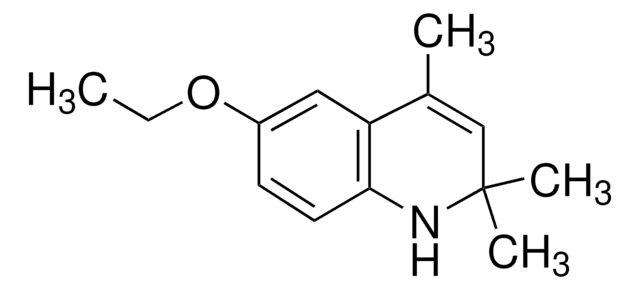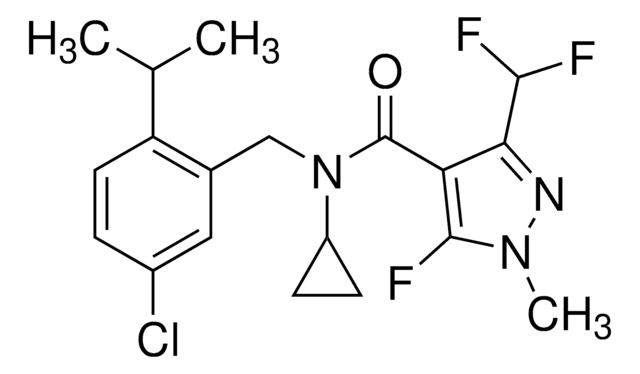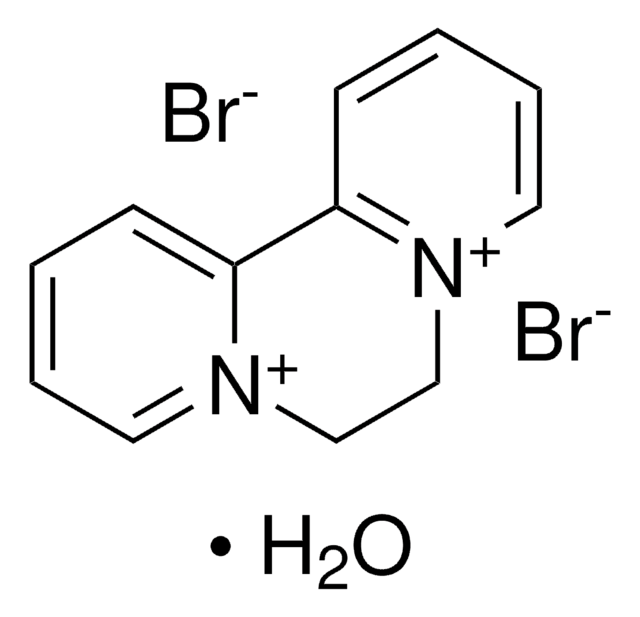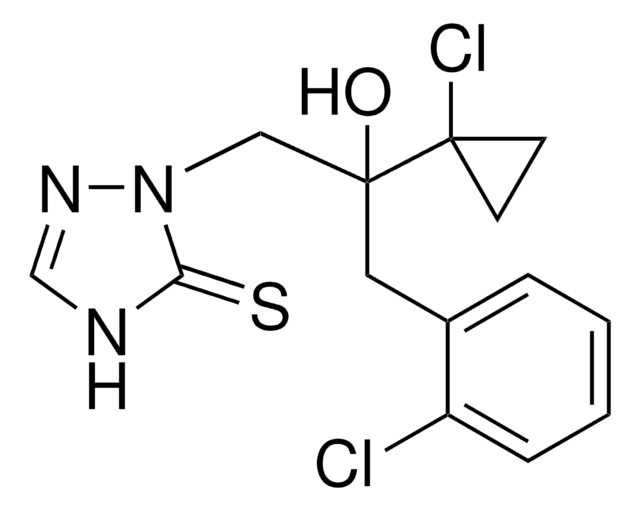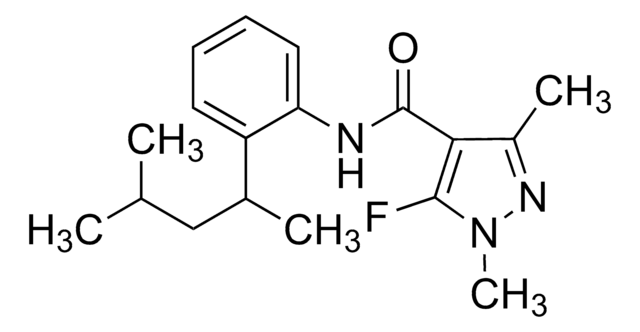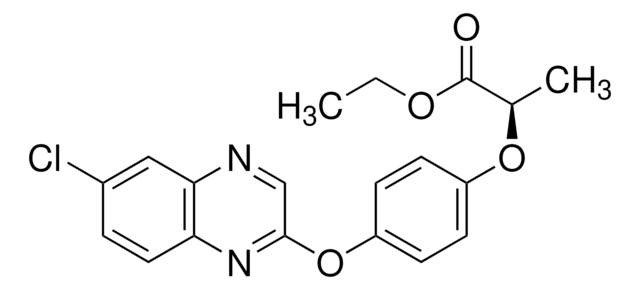79287
Ethoxyquin-(ethoxy-d5)
PESTANAL®, analytical standard
Synonym(s):
6-(Ethoxy-d5)-1,2-dihydro-2,2,4-trimethylquinoline, Ethoxyquin-d5
Sign Into View Organizational & Contract Pricing
All Photos(1)
About This Item
Empirical Formula (Hill Notation):
C14D5H14NO
Molecular Weight:
222.34
UNSPSC Code:
41116107
PubChem Substance ID:
NACRES:
NA.24
Recommended Products
grade
analytical standard
Quality Level
product line
PESTANAL®
Assay
≥98.0% (HPLC)
shelf life
limited shelf life, expiry date on the label
application(s)
agriculture
format
neat
storage temp.
2-8°C
SMILES string
CC1=CC(C)(C)NC2=CC=C(OC([2H])([2H])C([2H])([2H])[2H])C=C21
General description
Ethoxyquin-(ethoxy-d5) is an isotope labeled analog of ethoxyquin − an antioxidant used as a protectant/post-harvest fungicide in animal feed as well as agricultural products, wherein the ethoxy protons are replaced by deuterium.
Application
Isotope-labeled compounds are increasingly used in isotope dilution mass spectrometry (IDMS) for the quantitative analysis of pesticides. The major advantage of using this technique is that the isotope-labeled compounds have nearly the same physical properties as their non-labeled counterpart analogs, and thus show identical behavior during the workup and sample preparation process. This helps in overcoming the problems of matrix effects generally encountered in the usual LC-MS/GC-MS analysis, potentially resulting in biased results. By spiking the sample before workup with its isotope labeled analog, the loss of analyte that leads to matrix effects can be determined and compensated.
Legal Information
PESTANAL is a registered trademark of Merck KGaA, Darmstadt, Germany
Signal Word
Warning
Hazard Statements
Precautionary Statements
Hazard Classifications
Acute Tox. 4 Oral
Storage Class Code
10 - Combustible liquids
WGK
WGK 3
Flash Point(F)
Not applicable
Flash Point(C)
Not applicable
Choose from one of the most recent versions:
Already Own This Product?
Find documentation for the products that you have recently purchased in the Document Library.
Dissipation, metabolism and sorption of pesticides used in fruit-packaging plants: towards an optimized depuration of their pesticide-contaminated agro-industrial effluents
Karas P, et al.
The Science of the Total Environment, 530(8), 129-139 (2015)
Our team of scientists has experience in all areas of research including Life Science, Material Science, Chemical Synthesis, Chromatography, Analytical and many others.
Contact Technical Service